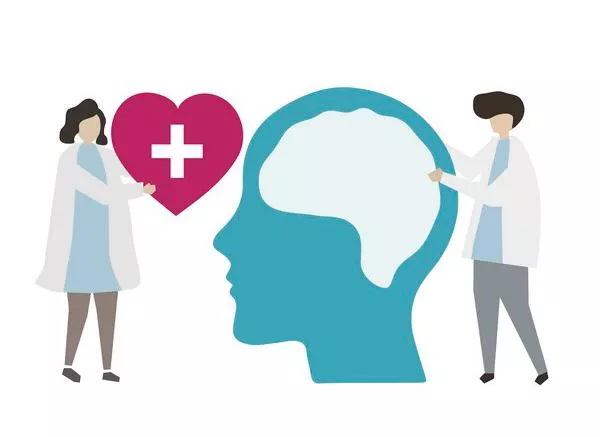A new study has revealed that ableism—discrimination or prejudice against people with disabilities (PWD)—remains a significant barrier to mental health care for individuals with disabilities, who make up 25% of the U.S. population.
Despite facing elevated mental health concerns and being more likely to seek mental health services than their non-disabled counterparts, people with disabilities report higher rates of unmet mental health needs and difficulties accessing appropriate care. The study, led by Katie Wang, an associate professor in the Department of Social and Behavioral Sciences at Yale School of Public Health (YSPH), explores the experiences of disabled individuals seeking mental health services.
“We interviewed 20 U.S. adults with a broad spectrum of visible and invisible disabilities,” Wang, the study’s lead author, said. “Across all these interviews, ableism emerged as a central issue when discussing their interactions with mental health providers.”
Ableism, which is rooted in the belief that non-disabled individuals are superior, can be both conscious and unconscious. It often manifests in harmful stereotypes, misconceptions, and generalizations about people with disabilities. These include viewing PWD as less capable or as objects of pity rather than as fully functioning individuals.
Participants in the study, aged 22 to 67, had a wide variety of disabilities, from chronic health conditions like epilepsy, to mobility disabilities such as spinal cord injuries, to sensory disabilities including blindness. Many participants also lived with a combination of disabilities and mental health conditions.
The researchers found several recurring themes in their interviews. A significant issue was mental health providers holding inaccurate assumptions about how disabilities impact mental health. Providers often lacked awareness of disability, with many either overlooking or minimizing its influence on an individual’s mental health. Participants described instances of being dismissed or ignored, with some sharing experiences of mental health professionals doubting their lived realities or stereotyping them.
These findings underscore the importance of disability competency in mental health training. “It’s crucial to incorporate disability knowledge and training into the education of future mental health providers,” Wang emphasized.
The study also highlighted challenges faced by individuals with multiple minority identities, such as those who are Black, transgender, and disabled. People with intersecting minority identities often experience compounded difficulties in accessing quality mental health care, yet little research has focused on this intersection.
The researchers found that these individuals encounter additional barriers, from provider bias to systemic obstacles, that make it even harder to receive effective mental health support.
Wang noted that a critical aspect of the study was its exploration of systemic ableism within the mental health care system. Even well-intentioned providers, she said, can perpetuate ableism simply by working within a fundamentally ableist system. One participant captured this sentiment, stating, “None of the people want to hurt us, but the structures are built to hurt us, and so they always will.”
This reflection speaks to the emotional harm sometimes caused by providers, who may not be aware of how their actions or the structures they operate within unintentionally affect their disabled patients.
Another significant barrier identified in the study was the physical accessibility of mental health care. While telehealth has been lauded for mitigating some physical barriers, not all participants were able to navigate virtual consultations. Deaf and hard-of-hearing participants, for example, expressed difficulty with lip reading during video calls, underscoring that telehealth is not a catch-all solution.
“I think what we want to be careful of is not to think of telehealth as a silver bullet,” Wang cautioned. “It does not address all accessibility challenges. However, as an additional tool, it certainly offers benefits for the disability community.”
In response to their findings, the researchers are calling for systemic reforms in mental health care. These include enhancing disability competency training for providers and prioritizing the recruitment and retention of disabled faculty and students in health care education. Wang also advocated for self-education on disability awareness among mental health professionals, alongside efforts to make mental health care more accessible through flexible practices, universal design, and a commitment to learning about disabilities.
Wang concluded by emphasizing that ableism is not merely an interpersonal issue—it is deeply embedded in health care systems. With YSPH’s focus on inclusivity, intersectionality, and belonging in public health, studies like Wang’s are crucial in highlighting the unique challenges faced by disabled individuals seeking mental health care, especially those with multiple identities.
By shining a light on these systemic issues, the study advocates for a broader, more inclusive approach to mental health care—one that addresses the needs of all individuals, regardless of ability.
You Might Be Interested In:
-
Common Brain Network Linked to Diverse Brain Atrophy Patterns in Schizophrenia, New Study Finds
-
Caregiver Stress Linked to Higher Hypertension Risk in Black Women, New Study Finds
-
The Link Between Social Media Use and Loneliness: A Closer Look

